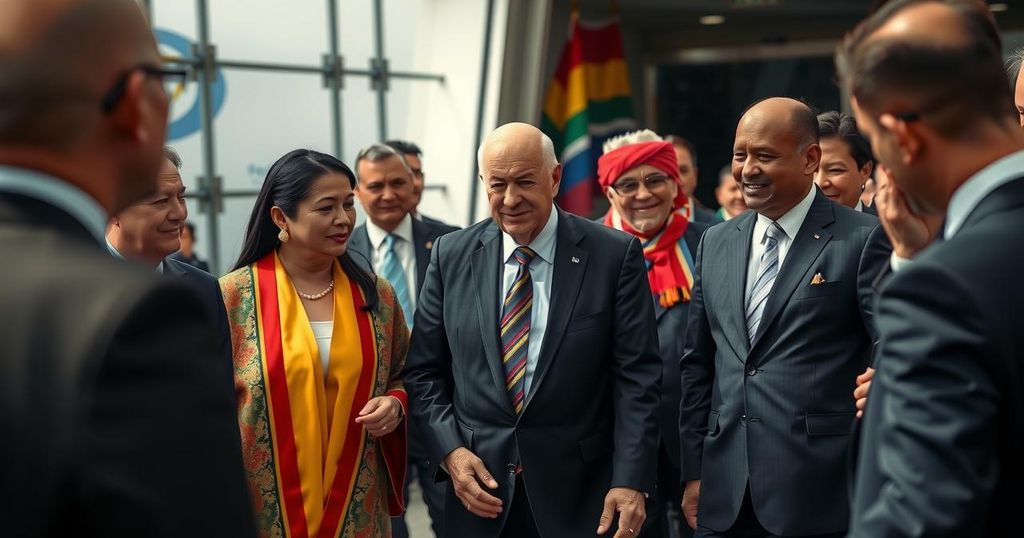Biden’s Diminished Role at APEC Summit Amidst China’s Growing Influence
President Biden attends the APEC summit in Peru while facing diminished influence due to China’s growing prominence, symbolized by the inauguration of a significant Chinese port. With the potential return of Donald Trump and his ‘America First’ doctrine, concerns arise regarding U.S. engagement in Latin America and the rising alternative partnership with China.
As U.S. President Joe Biden prepares to attend the Asia-Pacific Economic Cooperation (APEC) summit in Lima, Peru, his political influence appears diminished, particularly in the face of a resurgent China led by President Xi Jinping. This summit, historically significant for fostering trade relations, may see Biden competing for attention against Xi, who is set to inaugurate a $1.3 billion megaport that symbolizes China’s regional investment and influence. Just as the last APEC summit in Lima coincided with Donald Trump’s election, Biden’s visit is overshadowed by the potential return of Trump’s “America First” policy, which would impact U.S. engagement in Latin America. The Chancay megaport, located northeast of Lima, is poised to transform shipping routes between South America and China, significantly reducing travel times for goods. With 60% of the port developed by Chinese shipping giant Cosco and its local partners, the project underscores a strategic shift in Latin America’s alliances. Experts suggest that this development reflects a broader trend of the region moving towards closer economic ties with China, which has seen its trade with Latin America grow exponentially over the past two decades. China’s proactive engagement through investment and trade contrasts starkly with the U.S.’s perceived retreat from the region. As Biden attempts to assert U.S. influence, recent polls hint at a potential Trump resurgence that could lead to a reversion to isolationist policies. This uncertainty regarding U.S. diplomacy opens an avenue for China to assert itself as a favorable partner among Latin American nations, positioning itself effectively against the backdrop of U.S. political shifts. Despite these challenges, Peruvian officials argue that the U.S. retains a critical role in multilateral trade discussions, asserting that dialogue remains essential. Nevertheless, analysts anticipate that President Xi will capture the spotlight at APEC with the inauguration of the megaport, reinforcing China’s presence in an area historically considered within the U.S. sphere of influence.
The APEC summit serves as a significant gathering for several world leaders to discuss economic cooperation and trade in the Asia-Pacific region. In this context, Biden’s message may get lost against the backdrop of increasing Chinese investment in Latin America, particularly through infrastructure projects like the Chancay megaport. Developments such as these highlight the shifts in global economic power dynamics, especially as China has rapidly expanded its economic ties in South America over the past two decades, from negligible figures in 2000 to nearly $500 billion today. As the political landscape shifts with the possibility of Trump returning to power, U.S. strategies in engaging with Latin America may face considerable challenges even at critical summits like APEC.
President Biden’s participation in the APEC summit faces significant challenges, particularly as China’s influence in Latin America continues to grow. The inauguration of a new megaport illustrates China’s strategic foothold in the region and diminishes U.S. prospects for reasserting its dominance. In light of potential political changes in the U.S., experts warn that American influence may dwindle further if not actively countered. As China asserts its presence, the United States must navigate complex geopolitical dynamics to maintain relevance in Latin American affairs.
Original Source: apnews.com




Post Comment